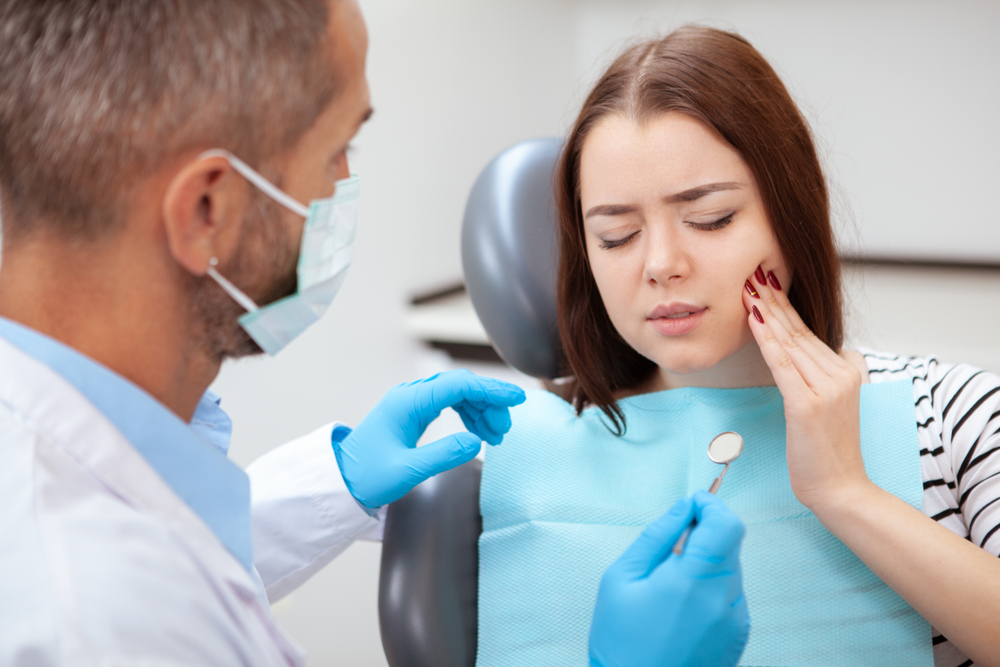
Navigating Dental Emergencies: The Crucial Role of Emergency Dental Clinics
Dental emergencies can strike at any moment, causing pain, discomfort, and anxiety. In these critical situations, the existence of emergency dental clinics becomes a beacon of relief for individuals in need. These specialized clinics play a pivotal role in addressing urgent dental issues promptly, offering not only immediate solutions to alleviate pain but also fostering a sense of reassurance in the face of unexpected oral health challenges. In this comprehensive exploration, we will delve into the foundations of emergency dental clinics, their crucial services, and the vital role they play in safeguarding oral well-being during times of urgency.
Understanding Emergency Dental Clinics: Fortresses of Urgent Oral Care
Emergency dental clinics are specialized facilities equipped to handle urgent dental issues that require immediate attention. Unlike routine dental visits that are scheduled in advance, emergencies often arise unexpectedly, demanding swift and expert intervention. These clinics are designed to address a spectrum of dental emergencies, ranging from severe toothaches and broken teeth to injuries and infections.
Key Features of Emergency Dental Clinics:
- Prompt Appointments:
Emergency dental clinics prioritize prompt appointments, recognizing the urgency of the situations they handle. Patients experiencing dental emergencies can often secure same-day or next-day appointments to receive timely care. - Extended Operating Hours:
Understanding that dental emergencies can occur outside regular business hours, many emergency dental clinics operate with extended hours, including evenings and weekends. This accessibility ensures that individuals can seek assistance when traditional dental offices may be closed. - Comprehensive Emergency Services:
Emergency dental clinics are equipped to provide a wide range of emergency services. This includes addressing acute pain, managing injuries to the teeth or gums, handling sudden infections, and performing urgent dental procedures. - Expertise in Trauma and Urgent Care:
The dental professionals working in emergency clinics possess expertise in trauma and urgent care. This specialized knowledge enables them to assess and address emergencies efficiently, providing immediate relief and laying the groundwork for further treatment.
Common Dental Emergencies:
- Severe Toothaches:
Intense and persistent toothaches can be indicative of various dental issues, including cavities, infections, or dental abscesses. Emergency dental clinics assess the cause of the pain and implement appropriate interventions. - Chipped or Broken Teeth:
Accidents or injuries can result in chipped or broken teeth. Emergency dental care may involve repairing or restoring the damaged tooth to prevent further complications. - Knocked-Out Teeth:
A knocked-out tooth requires immediate attention to maximize the chances of successful re-implantation. Emergency dental clinics guide patients on the steps to take before reaching the clinic for urgent care. - Dental Abscesses and Infections:
Painful swelling, accompanied by fever, may indicate a dental abscess or infection. Emergency dental professionals can provide drainage, prescribe antibiotics, and address the underlying causes. - Lost or Broken Dental Restorations:
Whether a crown, bridge, or filling, the loss or damage of dental restorations can cause discomfort. Emergency dental clinics can replace or repair these restorations swiftly. - Trauma to the Face or Jaw:
Accidents or trauma to the face and jaw can result in fractures or dislocations. Emergency dental care includes assessing and stabilizing such injuries, collaborating with other healthcare providers as needed.
Services Offered by Emergency Dental Clinics: Immediate Relief and Long-Term Solutions
Emergency dental clinics provide a spectrum of services aimed at delivering immediate relief while laying the foundation for long-term solutions. These services encompass:
- Pain Management:
Alleviating pain is a primary focus of emergency dental care. Whether through pain medications, local anesthetics, or other interventions, emergency clinics prioritize providing immediate relief to individuals in distress. - Diagnostic Imaging:
In cases of trauma or complex emergencies, diagnostic imaging such as X-rays may be performed to assess the extent of damage and guide the appropriate course of treatment. - Temporary Repairs and Stabilization:
For issues like broken or chipped teeth, emergency dental clinics can perform temporary repairs to stabilize the situation. This may involve dental bonding, splinting, or other interim measures until more comprehensive treatment can be undertaken. - Antibiotic Prescriptions:
In cases of dental infections or abscesses, emergency dental professionals may prescribe antibiotics to manage and control the spread of infection before definitive treatment. - Tooth Re-implantation:
When a tooth is knocked out, prompt re-implantation is crucial. Emergency dental clinics guide patients on proper handling, transportation, and initial care to optimize the chances of successful re-implantation. - Referrals for Specialized Care:
In situations requiring specialized care, such as maxillofacial surgery or endodontic procedures, emergency dental clinics can facilitate referrals to appropriate specialists for ongoing treatment.

Patient-Centered Approach: Alleviating Anxiety in Critical Moments
The patient experience in emergency dental clinics is characterized by a patient-centered approach that prioritizes empathy, clear communication, and the alleviation of anxiety during critical moments. Key elements of this approach include:
- Clear Communication:
Emergency dental professionals communicate clearly with patients, explaining the nature of the emergency, outlining proposed interventions, and addressing any concerns or questions. This transparency fosters trust and collaboration. - Empathetic Care:
Recognizing that dental emergencies can be distressing, the staff at emergency dental clinics provide empathetic care. This involves understanding and acknowledging the patient’s discomfort, taking steps to alleviate anxiety, and creating a supportive environment. - Education and Guidance:
Patients are educated about their specific dental emergency, including the causes, potential treatment options, and steps they can take to prevent further complications. This empowers individuals to make informed decisions about their oral health. - Pain Management Strategies:
Managing pain is a priority in emergency dental care. Patients receive information about pain management strategies, including prescribed medications, at-home care instructions, and the expected duration of discomfort.
Technology Integration: Enhancing Precision and Efficiency
The integration of technology plays a pivotal role in enhancing the precision and efficiency of emergency dental care. Key technological elements include:
- Digital Imaging:
Digital X-rays and imaging technologies allow emergency dental professionals to quickly assess the extent of dental injuries or conditions. This aids in accurate diagnosis and the formulation of appropriate treatment plans. - Teleconsultations:
Some emergency dental clinics leverage teleconsultation services to assess certain emergencies remotely. This can be particularly valuable in providing initial guidance and determining the urgency of an in-person visit. - Electronic Health Records (EHRs):
EHRs streamline the documentation of patient information, medical history, and treatment plans. This digital integration supports efficient communication between emergency dental professionals and ensures continuity of care.
Challenges and Opportunities in Emergency Dental Care
While emergency dental clinics play a vital role in addressing urgent oral health needs, they encounter challenges such as the unpredictability of emergencies, the need for immediate availability, and ensuring seamless coordination with other healthcare providers. These challenges present opportunities for ongoing improvements in the delivery of emergency dental care, including:
- Public Awareness and Education:
Increasing public awareness about recognizing dental emergencies and seeking prompt care is an opportunity for proactive oral health management. Education campaigns can empower individuals to respond effectively in critical situations. - Collaboration with Primary Care Providers:
Strengthening collaboration between emergency dental clinics and primary care providers can enhance the overall coordination of care. This involves effective communication, sharing of relevant patient information, and collaborative approaches to address both immediate and long-term oral health needs. - Integration of Teledentistry:
The integration of teledentistry into emergency dental care can enhance accessibility, especially for initial assessments and consultations. Teleconsultations can provide valuable insights, helping determine the urgency of in-person visits. - Continued Professional Development:
The dynamic nature of dental emergencies necessitates ongoing professional development for emergency dental professionals. Staying abreast of advancements in trauma care, emergency procedures, and technology ensures that clinics can offer state-of-the-art care to patients.
Conclusion: Guardians of Oral Well-being in Critical Moments
In conclusion, emergency dental clinics emerge as guardians of oral well-being in critical moments, providing a lifeline for individuals facing dental emergencies. Their prompt and expert care not only alleviates pain and discomfort but also sets the stage for comprehensive treatment and recovery. The role of emergency dental clinics extends beyond immediate interventions, encompassing education, guidance, and the assurance that, even in the face of unexpected dental challenges, there are dedicated professionals ready to safeguard oral health with precision and compassion. As beacons of reassurance, emergency dental clinics stand at the forefront of oral health care, ready to navigate the unexpected twists and turns of dental emergencies with expertise and unwavering commitment.
